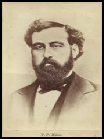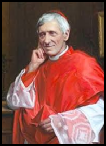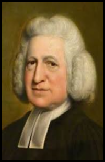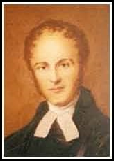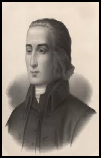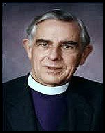

Holy Trinity
Amblecote
Hymn Writers
Thousands of hymns have been written for the Christian Church over the centuries. Here we list just a few of the more well known writers whilst recognising that there are many others equally as worthy who are not included.
Philip Paul Bliss (1838-
He was born in a log cabin in Pennsylvania from a Methodist background and became a schoolmaster and travelling music teacher. Later he formed an association with D. L. Moody and became a full time evangelist. He was killed in the Ashtabula River Railroad Disaster on 29th December, 1876. He wrote ‘Almost Persuaded,’ ‘Hallelujah, What a Saviour’ and ‘Let the Lower Lights Be Burning.
Fanny Crosby (1820-
She was a most prolific hymn writer and poet who was a lifelong Methodist writing over 8,000 hymns and gospel songs. Born in Brewster north of New York Fanny lost her eyesight at the age of 6 weeks although modern physicians believe that the condition was probably congenital and when she was examined at the age of three her condition was said to be inoperable and permanent. Perhaps her best known hymns are ‘Blessed Assurance,’ and ‘To God Be the Glory.’
John Henry Newton (1725-
John was born in Wapping, London and from the age of eleven went to sea, first with his father, then ‘pressed’ into the Royal Navy and latterly on a slave ship. He was captured and made a slave before being rescued and returned to the U.K. He was ordained into the Church of England in 1764. He collaborated with William Cowper, the poet to produce the ‘Olney Hymns’ which included among others ‘Glorious Things of Thee are Spoken,’ ‘How Sweet the Name of Jesus Sounds,’ and ‘Amazing Grace.’
Ira David Sankey (1840-
Sankey was born in Edinburg, Pennsylvania he served in the Civil War and became known as a gospel singer. He was associated with Dwight L. Moody a noted evangelist.
Both made several visits to the U.K where Sankey’s hymns were promoted by the Evangelical preacher Charles Spurgeon. His most well known hymn is perhaps ‘The Ninety and Nine,’
Isaac Watts (1674-
Born in Southampton and from a non-
Charles Wesley (1707-
Charles, the son of an Anglican Minister and brother of John was born in Epworth, Lincolnshire. He was educated at Westminster School and Christ Church, Oxford. He was a prolific lyric hymn writer with many of his compositions still widely sung today. These include ‘Christ the Lord is Risen Today,’ ‘Come Thou Long Expected Jesus,’ ‘Jesu Lover of My Soul,’ ‘Lo! He Comes with Clouds Descending,’ ‘O For a Thousand Tongues to Sing,’ ‘Hark the Herald Angels Sing,’ and ‘Rejoice the Lord is King.’ Contrary to the beliefs of many he was born and he died a member of the Church of England.
Henry Francis Lyte (1793-
Born at Ednam, near Kelso in Scotland, he studied at Trinity College, Dublin and took Anglican Holy Orders in 1815. He was Curate in Wexford and later in Cornwall. For a time he lived in Hampshire, then moved to Dittisham, Devon and in 1824 to Lower Brixham where he attracted such large crowds that the church had to be enlarged. Lyte had suffered from poor health for much of his life and this caused him to spend his later years on the Continent looking for warmer weather. His best known hymns are ‘Abide With Me’ and ‘Praise My Soul the King of Heaven.’
William Williams Pantycelyn (1717-
Williams, claimed by some to be Wales’ most famous hymn writer, was born in Beulah into a nonconformist family. He was however admitted as a Deacon of the Church in Wales (part of the Anglican Communion.) His application to the Priesthood was rejected and he became acknowledged as a leader of the Methodist Revival in 18th Century Wales. Williams wrote many hymns mostly in the Welsh language but perhaps his most famous is ‘Arglwdd, arwain trwy’r anialwch’ adapted into English as ‘Guide Me, O Thou Great Redeemer (Jehovah).’
Graham Kendrick (1950 -
Graham began writing songs in the latter part of the sixties and worked in various Christian music groups. He is perhaps best known for writing ‘Shine, Jesus Shine’ but has also written, amongst others, ‘The Servant King,’ ‘Such Love,’ ‘Meekness and Majesty’ and ‘Amazing Love.’
He divides opinion about the quality of his hymn writing with some claiming that he will one day be considered along with Wesley and Watts and others writing that he is "the nation's pre-
Timothy Dudley-
Born in Manchester and educated at Tonbridge School and Pembroke College, Cambridge he was ordained Priest in the Anglican Church in 1951. He was appointed Bishop of Thetford in 1981. In 2003 he was awarded an OBE for his services to hymnody. Perhaps his best known hymns are ‘Tell Out My Soul’ and ‘Lord For The Years.’
